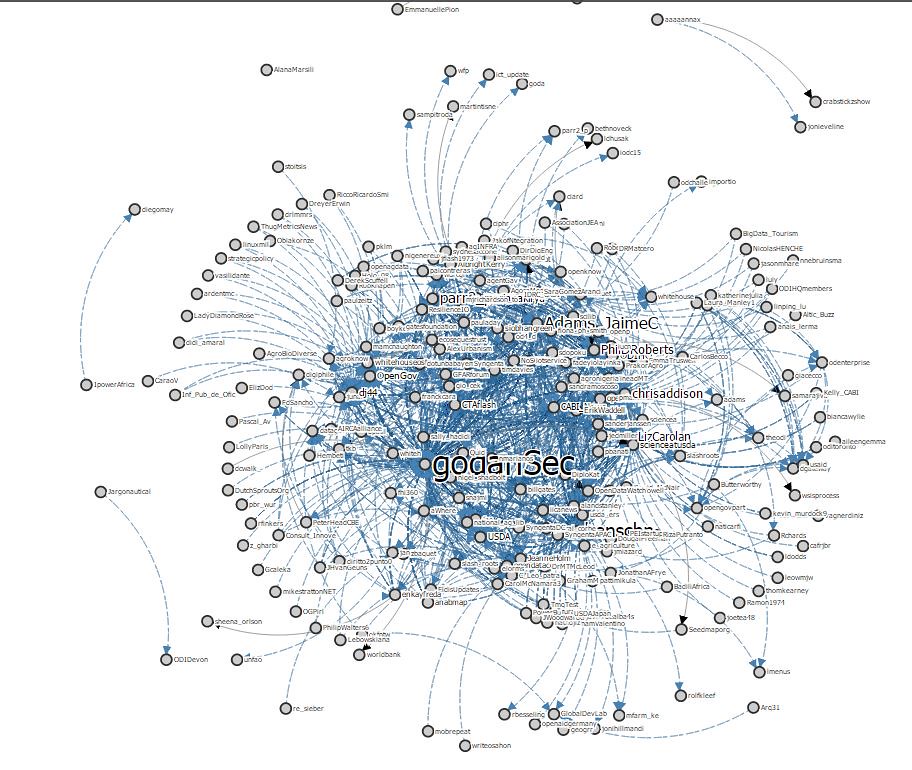Some days ago, I had the opportunity (and pleasure) to participate in the
Social Reporting to support innovation processes session organized by the
International Livestock Research Institute (ILRI) and facilitated by
Pierandrea Pirani and
Pete Cranston from
Euforic Services. It was a part of the
"AgKnowledge Innovation" Process Share Fair, a two-days which took place in Addis Ababa, Ethiopia (ILRI premises) between 25-26 May 2015
The whole event consisted of both face to face and online sessions covering a wide variety of topics; however, the concept of the specific one draw my attention due to the fact that I find myself often reporting back from events (e.g. RDA meetings, project meetings, workshops & conferences that I attend etc.), so I wanted to make sure that what I am doing is the right way to do it and of course to get to learn more on how to report even better. Despite my packed schedule during these days, I managed to ensure that I will have a free 1.30-hour slot for this so I made an online reservation (thanks to
Peter Ballantyne himself responding to my email; a person I really admire for the work that he has done and keeps doing in terms of agricultural information/knowledge management and communication) and joined the rest of the team!
 |
| Using the Adobe Connect software for participating to the workshop |
The specific session took place using using
Adobe Connect software (the tool proved to be fully appropriate for the specific purpose) on
25/5/2015, between
13.45-15.15. It consisted of a combination of plenary sessions with both online participants and workshop ones (the Addis Ababa participants), with breakout sessions of 3-4 persons in both virtual rooms and workshop location, reporting back using both mics and chat text; they even made use of a virtual whiteboard for sharing the feedback collected! It was quick, it was fun and it was educating! We started by trying to find a good definition of social reporting (e.g. see
here) and shared it with the rest of the participants through Twitter (you can check out the
#sfaddis #agprocess in Twitter for related discussions). We shared our previous experiences from social reporting and got to learn some interesting tips and new approaches for improving our work - all these in just 1,5 hour and through a blended session! There were cameras allowing us to see what was happening in Addis and people there could also see us and hear us so this made things really interactive.
The discussions were facilitated by Pierandrea Pirani (co-director of Euforic Services), who acted as the link between the online and face 2 face participants, coordinating discussions from Italy. If you ask me, it was a hard task but he did a great job ensuring that everyone would be included in the discussions and breakout sessions. At the same time Pete Cranston was in Addis, facilitating the workshop with the participants there. Great work from both and big thanks! In the end of the workshop, they even had prepared an online form for the participants to indicate what they like, what they didn't and what could be improved (which shows that the experience of the participants is valued ;-) )
 |
| Voice, text, video conferencing and even a virtual whiteboard; everything that a remote participant would need! |
As a good use case, the Euphoric Services team has already
reported back from the event through their blog, on which you can find additional information about the event and the formatting.
I was aware of the interesting events organized by ILRI's
Communications and Knowledge Management team but it was just the first time that I managed to attend one of them (even remotely) and I was amazed. I would like to thank Peter and the rest of the team for the excellent organization, both before (amazing documentation, preparations and even registration forms) and during the event, as well as the Euphoric Services team for facilitating the event in such a professional way ;-)







